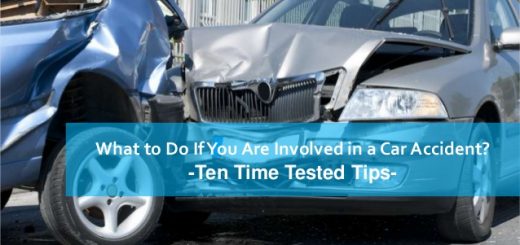Having a concussion can be extremely scary. Thankfully, most people recover from concussions and go on to live normal lives. However, a recent study has shown that if you sustain a concussion, your driving ability may continue to be affected even after your symptoms fade.
Driving After Symptoms Fade
The study, conducted by the University of Georgia researchers, shows that concussions may continue to affect drivers even after recovery. This study followed 14 college students who suffered a concussion and who stated that they were symptom free after 48 hours. The study included the use of a driving simulator. Many of the participants still drove erratically, sometimes appearing similar to someone under the influence, during that time period.
Why Is This Study Important?
This concussion study is important for college students and the general public. For both, it shows us that dangers still exist when it comes to driving after a concussion. It shows us that extra care should be taken when we get behind the wheel. Since the effects of a concussion can clearly continue much longer than the symptoms, it creates a bigger risk of car accidents.
Consider college football players. Concussions are a very real concern. In fact, the NCAA recently set aside more than $70 million for settlement money to care for college athletes who suffer from concussions. When college athletes, particularly football players, receive a concussion, they must be medically cleared before they can play their sport again. However, just like with the general public, there is no restriction on driving.
Should Driving Be Restricted After a Concussion?
You wouldn’t willingly ride with someone who is intoxicated even if they believed that they weren’t. Now that a scientific study has shown that lasting effects of a concussion can mean driving as if you are intoxicated, should we restrict driving after a concussion? The research noted that student athletes must always perform specific tests in order to test their cognitive abilities before they return to their sport, but there are few tests that exist for determining if it is safe for someone to drive. Julianne Schmidt, the author of the study, stated, “This is a pretty large indicator of motor vehicle accident risk.” Although there are no specific tests, it could be in your best interest to not get behind the wheel even if you’re no longer feeling the effects of a concussion.
What Are the Symptoms of a Concussion?
As you can see from the study, a concussion can seriously affect you even after the symptoms of a concussion fade. However, some people don’t recognize whether or not they have a concussion. If you notice any of these symptoms, seek medical care right away:
- A headache or a feeling of pressure within your head
- You lose consciousness even if it’s just for a moment
- You feel confused or like everything is foggy
- You’re dizzy
- You don’t remember what happened
- Your ears are ringing
- You are nauseated
- Your speech is slurred
- You feel dazed
- You find it hard to concentrate
- You’re extremely tired
Were You Involved in a Car Accident?
Have you or a loved one been involved in a car accident? You may be entitled to compensation. Contact Diamond and Diamond today at our 24/7 injury hotline at 1-800-567-HURT (4878) to book a free and confidential consultation.







